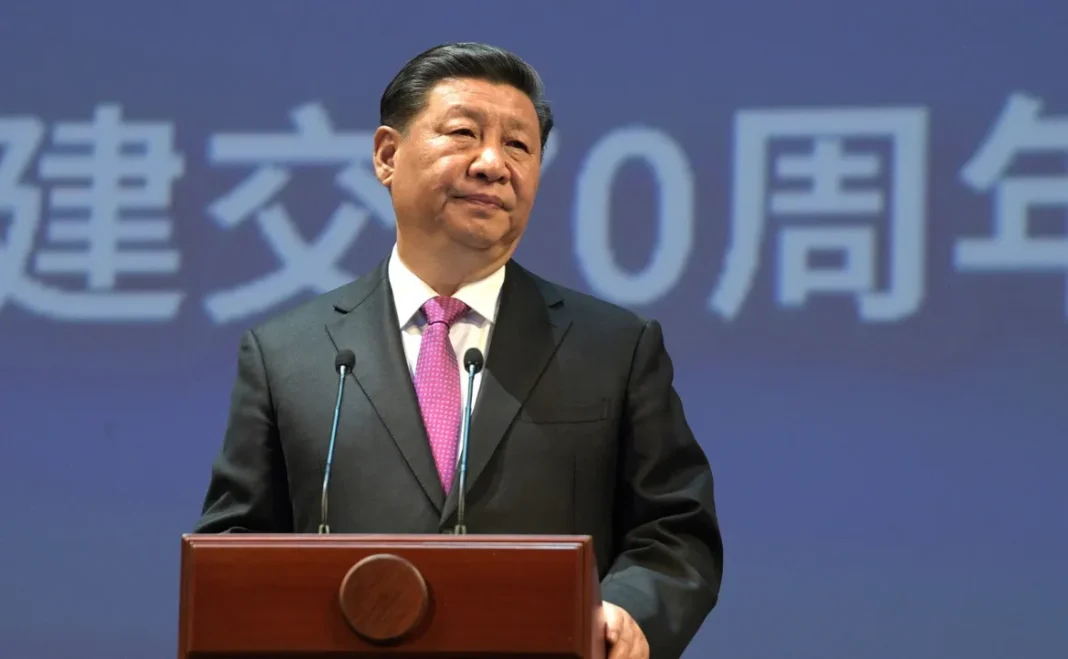In an interesting turn of events, late July 2023 saw China’s President, Xi Jinping, orchestrate a simultaneous replacement of two leaders in China’s military Rocket Force, a move that has left the international community perplexed.
Adding to the intrigue, Li Shangfu, ousted as Defence Minister in October, is now under scrutiny for alleged involvement in fraud during his tenure as the head of the Equipment Development Department.
The mysterious removal of nine senior military officials from the Communist Party-run Legislature, announced by the Standing Committee of the National People’s Congress on December 29th, 2023, further fueled speculation.
Notably, among those expelled were key figures in President Xi Jinping’s military, including Generals overseeing satellite launches and manned space missions, a Naval Commander instrumental in the South China Sea, and a Missile Commander specialising in nuclear response capabilities.
The purged officials, such as former Rocket Force Commanders Li Yuchao and Zhou Yaning, along with others like Zhang Zhenzhong and Admiral Ju Xinchun, were reported to have held prominent positions in the Rocket Force or the Central Military Commission’s Equipment Development Department.
Hong Kong media speculates that their removal might be linked to a burgeoning Rocket Force scandal.
Adding another layer to this unfolding drama, the Chinese People’s Political Consultative Conference expelled three defence-industry executives from military-related state-owned companies just days before, raising eyebrows about potential connections to the Rocket Force shake-up.
Xi Jinping, in a recent address, emphasised an unwavering commitment to rooting out corruption, urging the party’s graft-busters to “show absolutely no mercy.”
The Central Commission for Discipline Inspection declared an unrelenting campaign, targeting various sectors, including finance, state-owned enterprises, energy, tobacco, healthcare, and infrastructure.
Analysts argue that corruption finds fertile ground in the Rocket Force due to its substantial budget, and any compromise in quality control or falsification of data could jeopardise the performance and safety of its costly equipment.
The extent of this crackdown within the Chinese military, especially in the PLA’s Rocket Force, has surprised many observers.
Dennis Wilder, a senior fellow at Georgetown University, remarked on the stringent vetting process for senior officers within the Rocket Force, emphasising the shocking nature of multiple senior leaders being implicated rather than a single “bad apple.”
Tom Shugart, a former US Navy officer and now an adjunct senior fellow, drew parallels with a hypothetical scenario where the US President replaces top naval officers with those from other branches, underscoring the gravity of the situation.
The repercussions of the Rocket Force dismissals extend beyond the immediate personnel changes.
Some experts express concerns about the potential impact on the force’s trustworthiness and competence, creating a temporary vulnerability until Xi Jinping can restore order.
Yun Sun, Director of the China Program at the Stimson Center, highlights the strategic importance of China’s nuclear force and warns that it will take time to rebuild confidence.
Observers believe that Xi Jinping’s strategy indicates a surgical attack to assert control over the arms sector.
Tai Ming Cheung, a professor at the University of California San Diego, suggests a targeted crackdown signaling the party’s commitment to the long-term health of critical technological sectors.
This approach, however, raises concerns about instilling fear and demoralisation within the military and government.
While Xi’s anti-corruption campaign has solidified his power base, reports of discipline violations in the first nine months of 2023 increased by 17%, indicating that corruption and abuse of power persist.
Analysts predict persistent corruption in the Chinese military due to unresolved issues like low pay for officers and opacity in military expenditure.
The extensive purges led by Xi Jinping might have unintended consequences, potentially surrounding him with yes-men and fostering group-think. Christopher K. Johnson, a former C.I.A. analyst, notes that the ongoing purges reflect the lack of public scrutiny faced by the PLA, contributing to a potentially unstable leadership that could impact China’s national security and foreign policy.
The motivations behind the shake-ups remain unclear.
Some speculate it as being a move to eliminate corruption, while others suggest a purge of disloyalty or a combination of both. China’s opaque political system leaves much room for interpretation.
Xi Jinping’s determination to tackle corruption faces skepticism, with experts questioning the efficacy of his campaign. Despite some success in curbing corruption within the armed forces, rooting it out entirely appears to be an insurmountable challenge.
As long as systemic issues persist and a proper legal framework remains elusive, purges like these are likely to recur, further challenging Xi’s hopes for a corruption-free military.
eutoday.net

